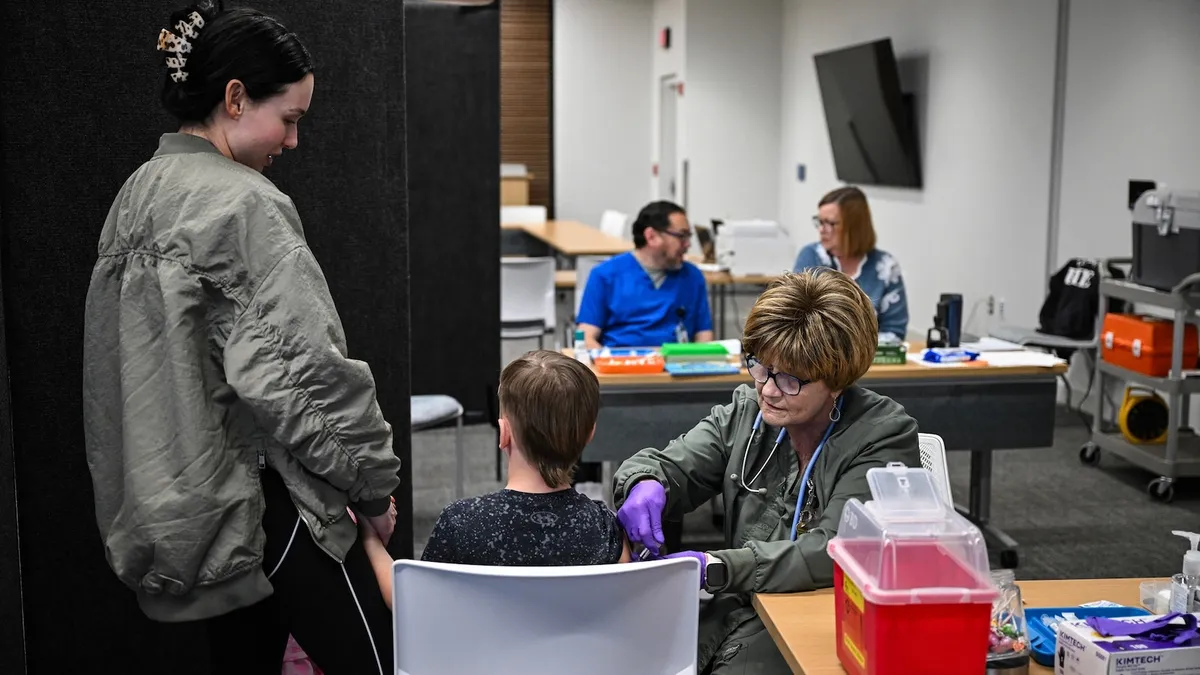
The number of measles cases linked to an outbreak in western Texas has escalated to 400, with 73 new cases reported over the last three days, according to recent data released by the Texas Department of State Health Services (DSHS). This alarming increase highlights the ongoing public health crisis, particularly among unvaccinated individuals or those with unknown vaccination status, which accounts for almost all cases. So far, at least 41 people have been hospitalized due to complications from the virus.
The data reveals that children and teenagers aged 5 to 17 represent the majority of cases, totaling 164. Additionally, children aged 4 and under comprise 131 cases. This demographic pattern underscores the vulnerability of younger populations to measles infections, especially in areas with low vaccination rates.
In a broader context, the Centers for Disease Control and Prevention (CDC) has confirmed 483 measles cases nationwide this year, spanning at least 19 states, including Alaska, California, Florida, and New York. Experts caution that these figures may be an undercount, as delays in reporting from various states may not fully capture the extent of the outbreak.
Amid the surge in measles cases, reports have surfaced regarding some unvaccinated children hospitalized in Texas exhibiting signs of vitamin A toxicity. Health and Human Services Secretary Robert F. Kennedy Jr. and other vaccine skeptics have proposed vitamin A as a treatment amid the outbreak. In a recent interview with Fox News, Kennedy claimed that HHS is providing vitamin A to measles patients, asserting that it can significantly reduce mortality rates associated with the disease.
While vitamin A is recommended by the World Health Organization as part of supportive treatment for measles, particularly to prevent complications like eye damage, it is crucial to note that vitamin A does not prevent measles infections nor does it directly combat the virus, experts have reiterated. Covenant Children's Hospital, which has treated numerous measles patients during this outbreak, indicated that some parents may have administered vitamin A to their unvaccinated children, leading to adverse effects, including signs of toxicity.
Vitamin A toxicity occurs when excessive amounts are consumed, potentially resulting in severe complications such as liver and kidney damage. Covenant Children's Hospital reported that fewer than 10 children presented with abnormal liver function in routine lab tests, suggesting possible vitamin A toxicity.
The American Academy of Pediatrics and the CDC emphasize that vaccination remains the most effective strategy to prevent measles. The CDC recommends that individuals receive two doses of the measles, mumps, and rubella (MMR) vaccine, with the first dose administered between 12 to 15 months of age and the second between 4 and 6 years old. The efficacy of the vaccine is notable, with one dose offering a 93% effectiveness rate and two doses providing a 97% effectiveness rate. Most vaccinated adults do not require booster shots.
State health data reveals that Gaines County, the epicenter of the Texas measles outbreak, has witnessed a significant rise in vaccine exemptions over the past decade. In 2013, approximately 7.5% of kindergartners in the county were exempt from at least one vaccine. By 2023, this figure had surged to over 17.5%, making it one of the highest rates of vaccine exemptions in Texas.
Among the nationally confirmed measles cases reported by the CDC, around 95% involve individuals who are unvaccinated or whose vaccination status is not known. Of these cases, 3% have received only one dose of the MMR vaccine, while 2% have received the required two doses. This underscores the critical importance of maintaining high vaccination coverage to safeguard public health.
As the situation develops, public health officials continue to urge communities to prioritize vaccination to prevent further outbreaks of measles and protect vulnerable populations.